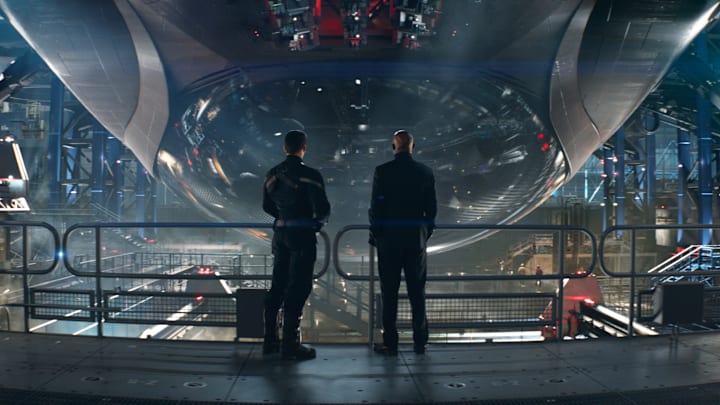Looking back at the Infinity Saga of the Marvel Cinematic Universe, it is remarkable how it transpired from success after success. Following the tremendous victory of The Avengers, it became a lofty task to maintain the momentum and expand the universe. But, in 2013, it only resulted in the semi-successful Iron Man 3 and the lackluster Thor: The Dark World.
However, the next year, two Marvel movies changed the trajectory of the saga and even the genre. The MCU would not be the same without these magnificent Phase Two movies. A decade after their release, here is a look back of the impact and the legacy of those two tentpoles: Captain America: The Winter Soldier and Guardians of the Galaxy.
Captain America: The Winter Soldier
Steve Rogers’ journey continues from the first Avengers, wherein he accomplished missions for S.H.I.E.L.D., using his military experience. However, a deep conspiracy within the organization leads Nick Fury to be severely injured and Rogers to be framed as the conspirator of the attack. This leads him and Natasha/Black Widow to uncover the true perpetrators of Fury’s injury. But the secret that he unearths changes the way Steve sees the world.
The Winter Soldier is the first MCU effort of Anthony and Joe Russo, who got hired by Kevin Feige for their work in the Community episode “For a Few Paintballs More”. But Russo made it clear that they wanted to emulate a political thriller out of Captain America’s second solo outing. Feige supported this by mentioning acclaimed 70’s thrillers like The Parallax View and All the President's Men as the film’s inspiration.
Thus, while the tone remains consistent with the rest of the MCU, there is a lingering mood that surrounds the movie. That mood is crucial to build up to the revelation about S.H.I.E.L.D. and the secret about the Winter Soldier. Surprisingly, these themes of espionage and conscience will continue to persist, even beyond the Infinity Saga.
With tight execution, gripping action and subtle commentary, The Winter Soldier is the closest that the MCU has gotten to a game-changing superhero movie that is less on franchise and more on theatricality (next to Black Panther).
Guardians of the Galaxy
Before Guardians, James Gunn had his hand in the superhero genre with the boundary-pushing black comedy Super and the oddity subgenre with his time under the cult film factory Troma. Naturally, he is the best guy to bring Marvel's space-based troop to the big screen.
Any hope for its success is rooted in Marvel's winning streak and hungry for newer heroes. But lo and behold, it carved its success that resulted in two sequels, one Disney+ show, multiple attractions and the catapult of Chris Pratt's career.
On the surface, Guardians of the Galaxy is a conventional space flick centered on a ragtag team of misfits. But what made it stand out is Gunn's irreverence and passion for the material by Dan Abnett and Andy Lanning. His playful tendencies made it effective in bringing characters like Star Lord, Rocket Raccoon and Groot to life.
Add that with an eclectic soundtrack and amazing worldbuilding across three films, and Marvel has a solid team to expand the cosmic part of the universe.
Thanks to the success of the trilogy, many blockbusters tried their hardest to recapture their magic, with the likes of Suicide Squad, Bright and recently Borderlands, to varying levels of results. Even if the Guardians formula runs its course, it does not dispute the heart and wit that it achieved on its run. With all the hoops and challenges, including being briefly booted out of Volume 3, James Gunn achieved a solid trilogy the way he envisioned.
